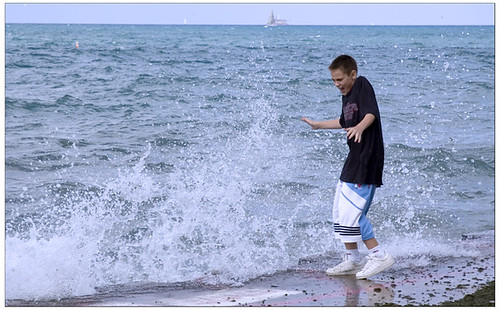
Can we start treating fresh water as a precious commodity yet? And stop willingly polluting it? And selling it to beverage companies?
Experts unsure why there is less waterNo consensus as to cause, but there are a few plausible guesses:
For a couple of days last week, Lake Michigan dropped beneath its record monthly low, heightening concerns about lower water levels in the Great Lakes.
The readings lasted only a few days and do not amount to a new record, which can only be set by monthly averages, but forecasts suggest it could be official by the end of January if expected rains and snowfall do not deliver.
"This is the closest we've been to the record low line in a while," said Cynthia Sellinger, deputy director of Great Lakes Environmental Research Laboratory in Ann Arbor, which is run by the National Oceanic and Atmospheric Association. "Lake Michigan has been dropping continuously since 1997, and it's finally approaching the record lows."
[From Lake Michigan monthly averages nearing record lows]
Possible explanations for the levels have ranged from the effects of warmer winters and drier summers to the unintended consequences of dredging rivers between the lakes in the 1960s. Some have posed that the water may actually be draining from the lakes more speedily because the Earth's crust is lifting beneath them, having been freed of the weight of glaciers so recently, geologically speaking.
Whatever the cause -- or combination of causes -- Lakes Michigan and Huron are poised for one of their lowest years since levels were first recorded in 1860.
